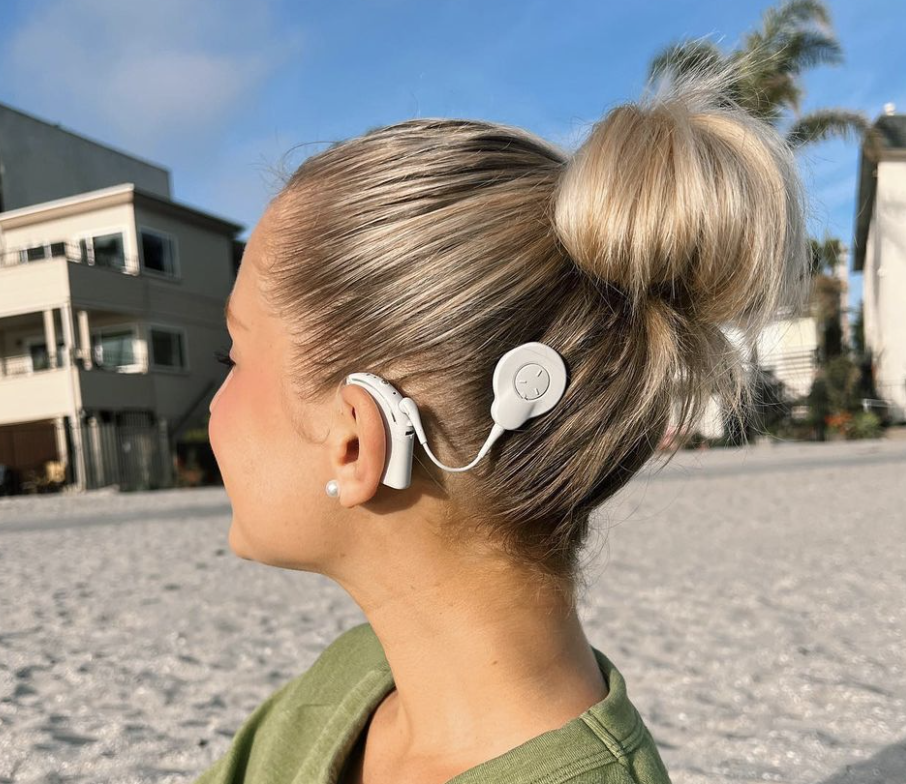Health News & Trends
Daisy Kent Discusses Ménière’s Disease And Hearing Loss
Daisy Kent, a candidate on “The Bachelor,” captured America’s hearts while pursuing Season 28’s lead, Joey Graziadei, by coming up about her significant hearing loss on their first date. The 25-year-old received a cochlear implant last year after losing her hearing, which she believes was caused by Lyme disease and, later, Ménière’s disease, an inner ear condition common in adults that causes poor fluid balance in the ear, tinnitus, vertigo, and can destroy the cochlea, the hearing organ.
The Minnesota native has recorded her experience from surgery to implant activation and beyond on TikTok, where she currently has over 142,000 followers, and her open discussion about her illness has encouraged others who have hearing loss.
Dr. Aaron Fletcher, a board-certified ENT otolaryngologist, told The Post that there is a stigma associated with both hearing loss and hearing aids.
“If you’ve ever seen someone with a cochlear implant, it just looks different — it’s literally anchored into the skull with a magnet.”
According to Fletcher, there is no documented relationship between Lyme and Ménière’s illness, however Kent has stated on the internet that a mix of the two is what her physicians suspect might be causing her hearing loss at such an early age.
Ménière’s illness, which is treated with a low-salt diet, is often genetic, according to Fletcher, but Kent has previously stated that no one in her family has a history of the disorder.
Management of Ménière’s illness, such as maintaining fluid balance by limiting salt consumption, is critical to having “more time with your hearing,” he explained.
“If you’re not managing the Ménière’s, in the span of years or decades, you can lose your hearing completely,” he continued, adding that historically, it takes “many years,” even decades, for hearing to disappear fully, which is why it’s more frequent in older folks.
While an estimated 40 million individuals over the age of 18 had hearing problems of varied degrees, Kent’s situation, he added, had to be “severe.”
“It’s not really common to see it in someone 25 that actually has Ménière’s that’s caused hearing loss completely,” he said.
Kent has a cochlear implant, which is reserved for people who struggle to hear well, he explained, because such hearing loss cannot be alleviated by hearing aids, which “basically just turns up the sound.”
The implants, on the other hand, require a long time for the brain to adjust to; Kent reported that when she initially activated her implant, everyone’s sounds were high-pitched and sounded like chipmunks.
While individual experiences differ, Fletcher believes it might take years to fully recover someone’s hearing.
However, because of the stigma associated with cochlear implants and hearing loss in general, Kent’s openness about her own experience may educate individuals who are unfamiliar with the disease and equipment.
Fletcher stated that some patients who use hearing aids are “constantly having to educate people” about them.
“I think it’s good to have somebody on the national scene that is helping to break the ice on that topic, because…there’s some kids that are actually having cochlear implants and having to go to school and probably explain ad nauseam what it is and what it does,” he went on to say.
“But it’s good when you have some national attention to these kind of things.”
Trusted Health, Wellness, and Medical advice for your well-being


